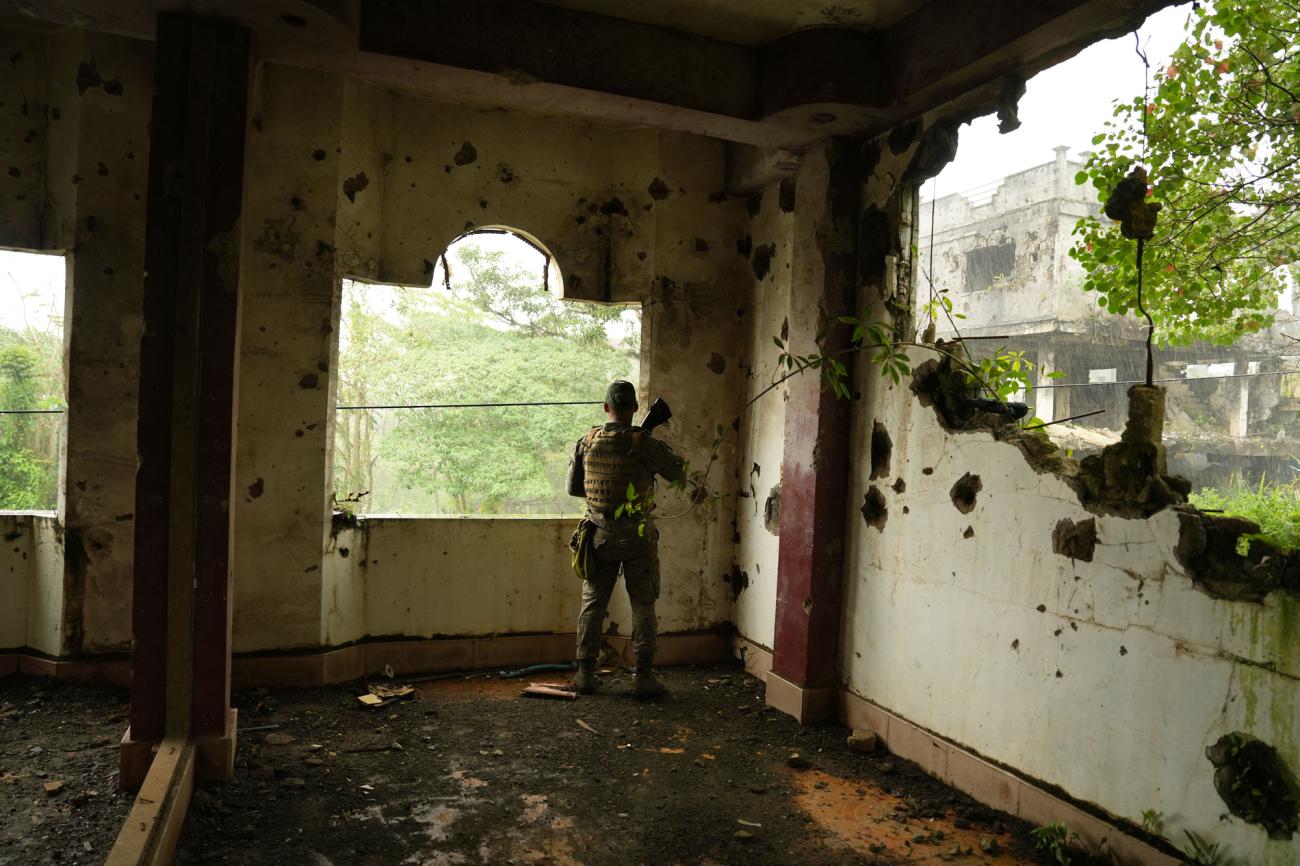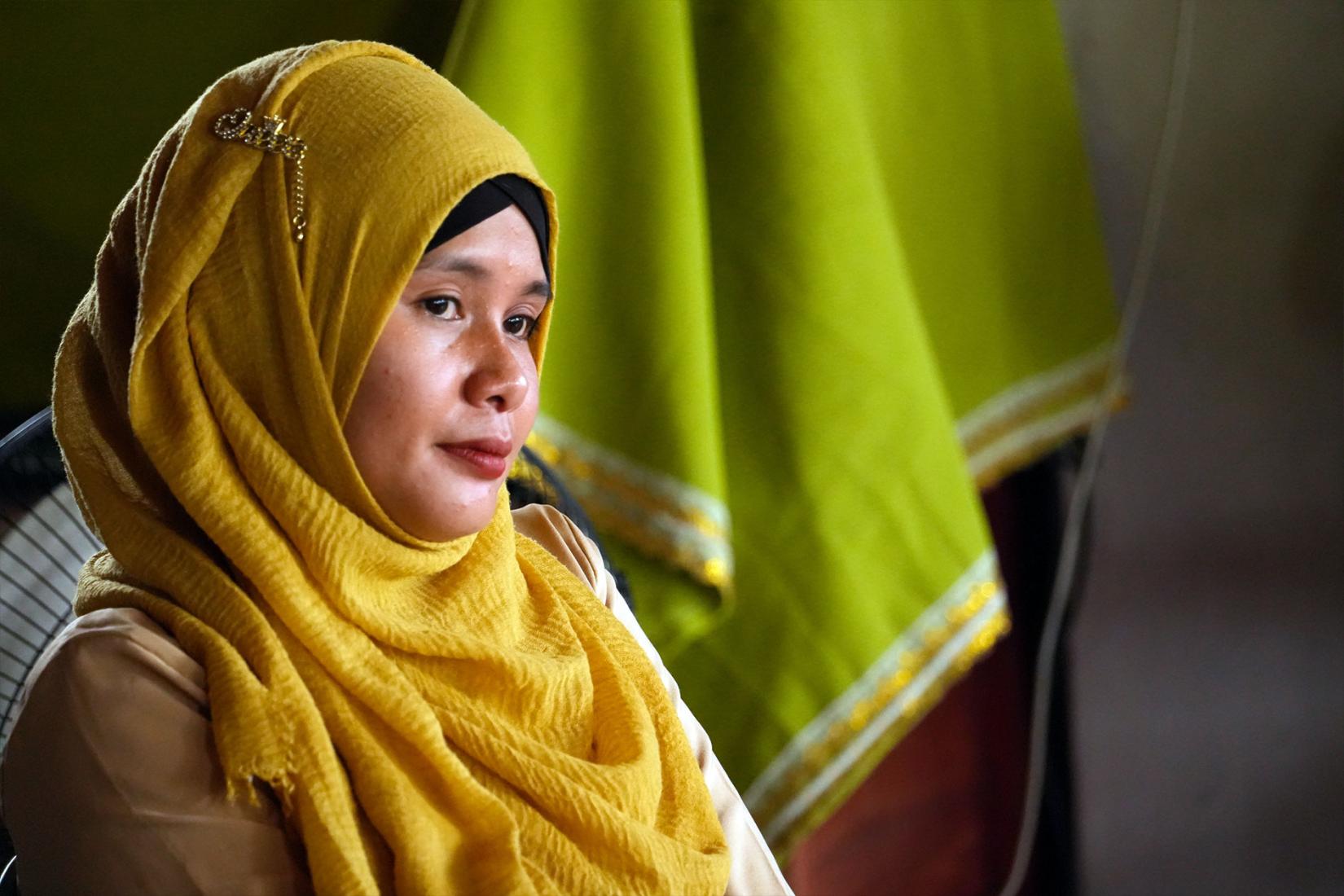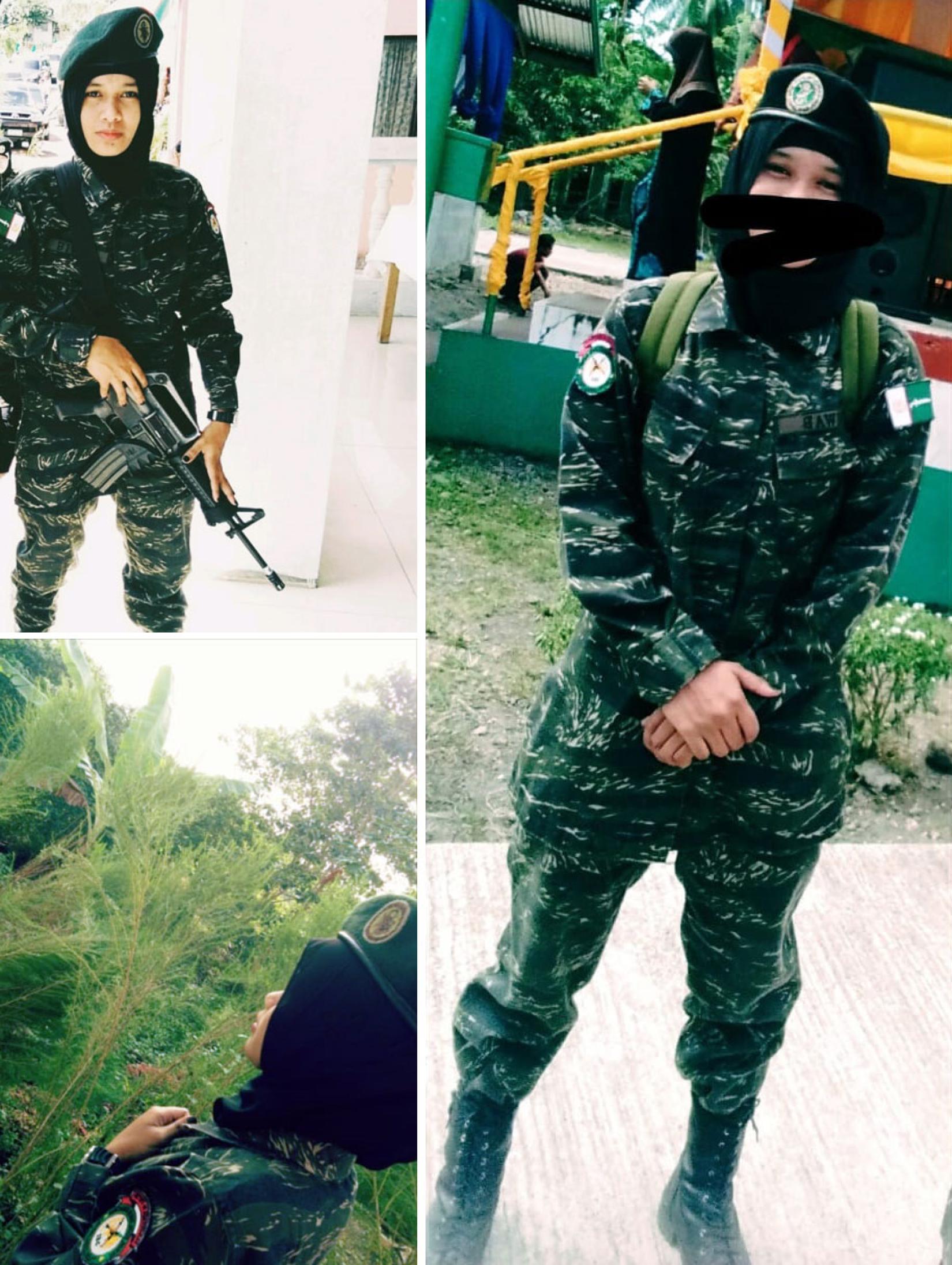First Person: Swapping guns for ballpens in the Philippines

A former combatant fighting for the rights of her people on the island of Mindanao has been talking about how she has swapped her combat fatigues for jilbabs.
Suraida ‘Sur’ Amil joined the Bangsamoro Islamic Women Auxiliary Brigade (BIWAB) as an 18-year-old with the with the goal of achieving autonomy for the predominantly Muslim regions of Mindanao.
After an agreement was signed to end the insurrection and provide a greater autonomy and self-governance for the people of Bangsamoro, she participated in a reconciliation programme supported by the UN Office on Drugs and Crime (UNODC) to reintegrate and rehabilitate former combatants.

Here are her views, to commemorate The International Day of Non-Violence, which is observed annually on 2 October.
“From an early age growing up in Bangsamoro, I saw how difficult life was for my parents. They faced different forms of discrimination and they witnessed the brutality of the nine-year-long martial law which was declared in 1972 and which deeply affected many communities across Mindanao, including Muslim populations.
My parents had a hard life, they lived in poverty and were not able to achieve their dreams. This has affected my life and the life of my nine other siblings. I had hoped to become a teacher but I was never able to do so as I did not finish school due to the lack of financial support.
At eighteen I realized I had to fight for the rights of our people for our self-determination, not just for my generation but also for future generations.
A friend of mine was a member of BIWAB and as soon as I heard about its goals, it made me think about the suffering my parents had experienced and what I could do to improve the situation for our community.
If you ask me whether I would choose war or peace, of course I would never choose war over peace, but we had to fight for that peace.

I spent time operating in the jungles as a combatant. It was a harsh environment living in the mountains alongside wild animals without the comforts of home.
But women are very strong; they have the ability to become fighters while at the same time be providers for their families.
Ballpens not guns, jilbabs not military uniforms
In 2014 the peace agreement for Bangsamoro (the Comprehensive Agreement on the Bangsamoro, CAB) was signed and so little by little we are transforming ourselves into civilians. I have swapped my combat boots for lipstick, I carry ballpens for writing rather than a gun for shooting, I wear a jilbab and not a military uniform and I have moved out of the jungle and back into my community.
I have become a peace facilitator and work with people in my local area on issues such as gender-based violence and how to prevent violent extremism.
Islam teaches us to be kind to one another and not to harm other human beings. We have a saying in Islam that if we save one life, it is as if we have saved humanity.
I value and am proud of my role as a peace advocate in my community.
As part of the workshop discussion on modern forms of communications, which I participated in, I learned how to promote the awareness and prevention of violent extremism on social media.
I am now living a life of peace but my message to my young daughter has always been that she should always fight for her rights.
When you are fighting for a noble cause, it doesn’t matter if you gain or you lose something, because it is the cause itself which truly matters.”
Suraida Amil participated in the Strategic Communications workshop on Preventing and Countering Violent Extremism (PCVE) under the EU-STRIVE programme.
This article was originally published on UN News.

